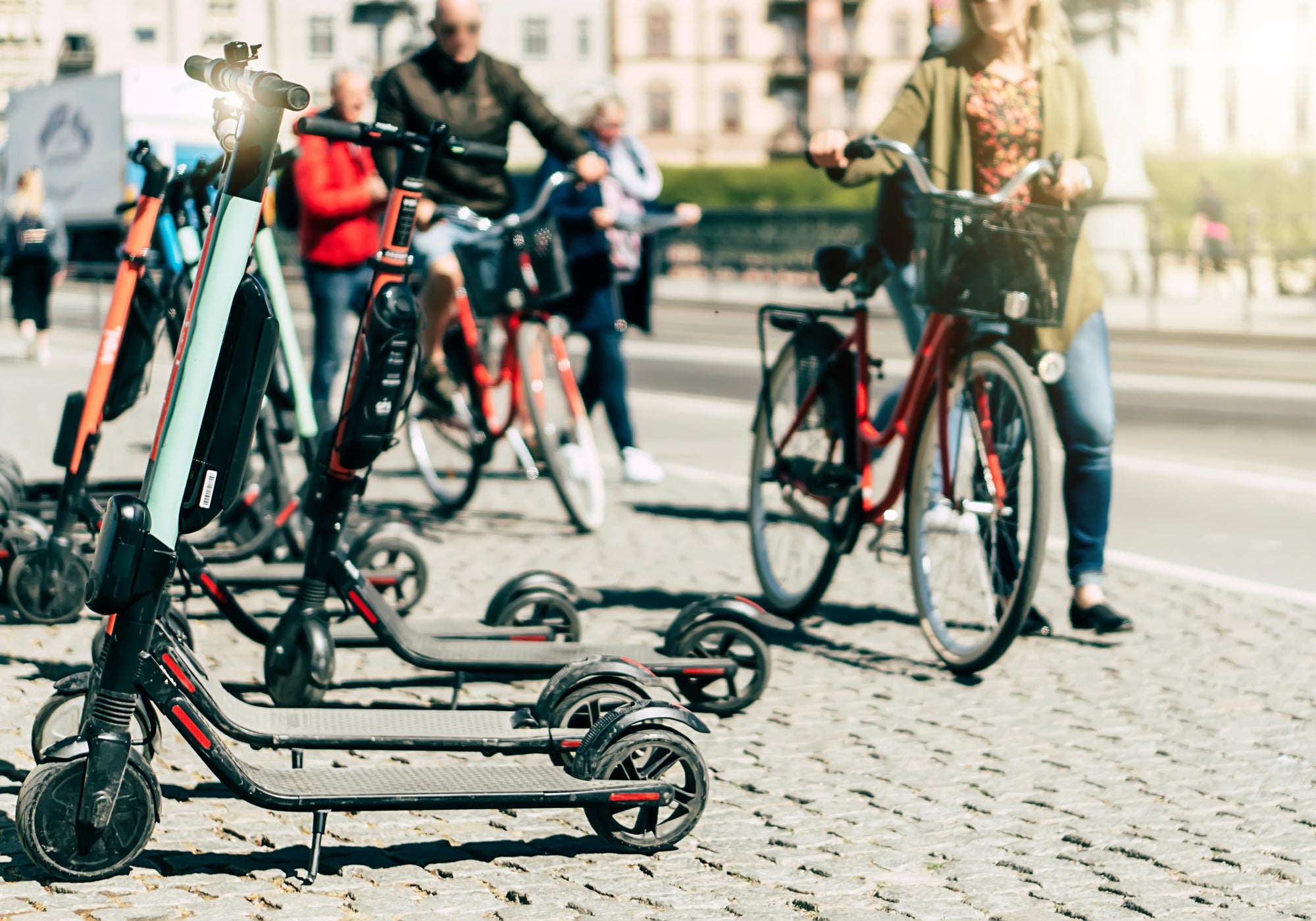
Representatives from micromobility firms have asked the UK government for e-scooters to be put on a level playing field with e-bikes when it comes to requiring a driving licence and motor insurance.
On 1 July the government announced a year-long UK e-scooter trial. The electric vehicles will be limited to a maximum speed of 15.5mph and banned on pavements. Privately owned e-scooters remain illegal to ride except on private land, with the trials only giving permission to rental companies.
However, a key stipulation of the UK e-scooter trials is that riders will need a full or provisional car, motorcycle or moped licence to use the electric vehicles.
Riders do not need to take out their own insurance to rent an e-scooter, but questions have been raised about who would be liable if an e-scooter were involved in a crash with other road users.
During the UK trials, e-scooter companies are required to cover riders with motor vehicle insurance policies.
UK e-scooter trials required “trade-off”
Speaking at the Transport Committee’s final evidence session on e-scooters, Bird’s head of public policy for Northern Europe & Asia Pacific Emma Silver said it was “problematic in the long term” to require a driving licence and motor insurance.
How well do you really know your competitors?
Access the most comprehensive Company Profiles on the market, powered by GlobalData. Save hours of research. Gain competitive edge.

Thank you!
Your download email will arrive shortly
Not ready to buy yet? Download a free sample
We are confident about the unique quality of our Company Profiles. However, we want you to make the most beneficial decision for your business, so we offer a free sample that you can download by submitting the below form
By GlobalDataHowever, she understands that the “trade-off” was required to get trials underway.
UK law currently classifies e-scooters as Personal Light Electric Vehicles (PLEVs), which makes them subject to the same legal requirements as motor vehicles. This includes MOT, tax and licencing.
Industry sources previously told Verdict that the driving licence requirement was a means to fast-track the trials, with a view to changing legislation later down the line should the trials prove to be successful.
“As an operator, we are able to meet those requirements for now, and we do hope that to encourage the uptake in the long term, those two requirements won’t make it into the primary legislation eventually,” said Silver.
Alan Clarke, director of policy, UK, Ireland & Nordics at Lime agreed that these stipulations were a barrier for people using e-scooters.
“Something like a driving licence requirement for e-scooters makes that a different experience for users and might discourage people from using both services,” he said.
“We can certainly work within that for the trial period, but longer-term those are some the areas we’d like to see some changes.”
Richard Corbett, regional general manager UK, Ireland and Benelux at Voi agreed with these statements and that he understands why the government made driving licence’s mandatory to expedite the trial process.
“It’s nothing short of a miracle what the UK government has done to go from a standing start in May to effectively launches happening this week,” he said.
Inconsistent approach to insurance
One point of contention around e-scooters is who would be liable for any damage caused by a rental e-scooter. And while all e-scooter firms are required to provide motor insurance for riders, the government will review this at the end of the trial period.
“We would like to see electric scooters have parity with electric bikes due to the similarities between those two vehicles,” said Bird’s Silver.
E-bikes and e-scooters have the same maximum speed of 15.5 mph, but motor insurance is not required for e-bikes and policies provided by rental bike firms is patchy.
“We take full responsibility as an industry for making sure we have the right protections in place both in terms of public liability insurance and also where it’s appropriate the correct insurance in place,” said Silver.
She added that there should “perhaps be a broader review as to whether or not insurance should be required for electric bikes as well”.
“At the moment it isn’t and I believe that is the right position for electric scooters said as well.”
Lime said it will cover its riders with a third-party motor insurance provider, while Voi said it pledges “full comprehensive cover”.
However, Voi’s Corbett disagreed that e-scooters and e-bikes should be treated equally.
“This is a huge change in the way people travel,” he said.
“We can’t go through this process with a hands-off approach and say let’s just align with bikes. I don’t think that’s acceptable and we’re certainly not going to do that.”
Read more: Tier Mobility makes UK e-scooter push as trials poised to start







